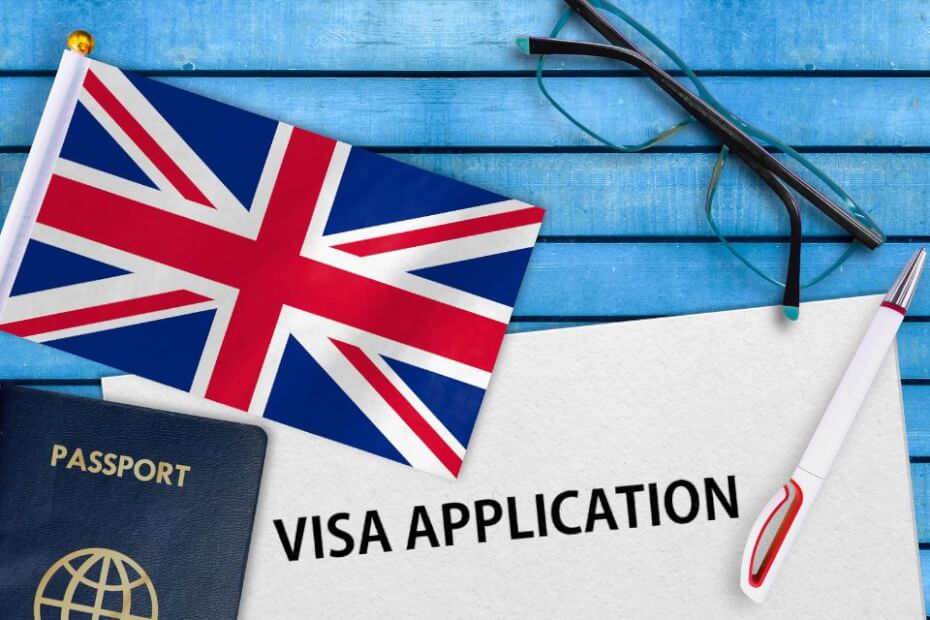
The United Kingdom’s (UK’s) new rule changes on visa application, launched in 2024, have resulted in a 43-percent drop in visa applications compared to the previous year.
According to Home Office data, between April and December 2024, 547,000 people applied for visas to work or study in the UK.
This represents a steep decline from 942,000 during the same period in 2023.
This also means that nearly 400,000 fewer people sought entry into the UK last year.
The decrease coincides with the new immigration policies introduced by the government in 2024.
These changes, which include stricter requirements for work and study visas, were intended to reduce legal immigration by 300,000 annually.
However, critics warn that the policies could harm sectors that depend heavily on skilled international talent and students.
Visa policy changes affecting workers and students
The previous administration first announced the visa policy changes in December 2033.
The following changes made it harder for international workers and students to come to the UK:
Restricting bringing dependents
In March 2024, those on the Health and Care Worker are banned from bringing dependents.
This has discouraged healthcare workers with families from coming to the UK to work.
Care companies planning to sponsor healthcare workers must now also register under the Care Quality Commission (CQC).
Tighter rules for international students
Beginning January 2024, international students can no longer bring family members unless enrolled in specific postgraduate research programs.
They are also restricted from switching to a work visa until they have finished their course.
Tighter rules for UK Student visa applications also include regulating the agencies and agents who recruit overseas students to enroll in the UK.
Higher skilled workers’ salary thresholds
In April 2024, the salary threshold for skilled workers was increased to £38,700, making it difficult for lower-earning workers to qualify for a visa.
This has impacted the hospitality, social care, and retail industries, which often depend on workers earning below the new limit.
Employers in these industries are voicing concerns about their ability to attract the workforce they need.
The Home Office also introduced the new Immigration Salary List (ISL) to replace the Shortage Occupation List (SOL).
This helps prevent employers from hiring overseas workers for less than the local workforce.

Increased income requirement for family visa
Visa reforms also included raising the minimum income requirement for family visas from £18,600 to £29,000.
This has made it harder for Britons earning under the national average to bring over foreign spouses.
Raised Immigration Health Surcharge
Additionally, the Immigration Health Surcharge (IHS) was raised in February 2024, making UK visa applications more expensive.
Health and care sector faces challenges
The health and care sector, which relies on overseas workers to fill critical positions, has been hit particularly hard.
Applications for Health and Care Worker visas dropped by an alarming 79 percent.
This translates to 63,800 applications in April to December 2024 compared to 299,800 in the same period in 2024.
This sharp decline has raised alarms in an industry already struggling with staff shortages.
The restrictions on family dependents and salary thresholds create significant challenges for recruiting much-needed care workers.
Care groups and associations warn that the new rules could worsen the already severe staffing crisis in the care sector.
A decline in UK visa applications for international students
The new policies have also impacted international student numbers, a vital source of revenue for UK universities.
Applications for student visas fell by 16 percent between July and September 2024 compared to the same period the previous year.
British universities now worry that the new rules will make the UK less attractive to international students.
They fear that the drop in numbers is due to policies that disregard the long-term benefits these students bring to our economy.
The decline in student numbers could lead to financial instability for institutions that rely on tuition fees from international students.
Universities are now calling on the government to reevaluate its policies to avoid further damage to the sector.
Skilled Worker visa applications’ economic and technological impact

There has been a much smaller drop – just three percent – among Skilled Worker visas’ main applicants and dependants.
From April to December 2024, there were 93,800 applicants for Skilled Worker visas, compared to 96,600 applicants in the same period in 2024.
Still, this number is slightly higher than 92,300 from the equivalent nine-month period in 2022.
Skilled workers play a critical role in various industries, from healthcare to technology.
With fewer workers entering the country, employers are raising concerns about potential skill shortages.
The tech industry, for example, has expressed worries about the time and cost associated with recruiting international employees.
Attracting top talent is crucial to the UK’s aim of positioning itself as a global leader in artificial intelligence (AI) and other advanced industries.
The UK Government remains committed to managing migration and ensuring that the UK remains competitive in critical industries.
Prime Minister Sir Keir Starmer is set to announce an AI Opportunities Action Plan to expedite visa applications for AI experts.
Calls for a balanced approach
Critics of immigration policies argue that while limiting immigration is a valid goal, it shouldn’t harm vital industries.
These sharp reductions in visa applications could result in trade-offs that undermine sectors like health and education.
Healthcare, education, and technology are among the sectors urging the government to take a more balanced approach.
Employers and educators call for adjustments to salary thresholds and the loosening of family-dependent restrictions.
Stakeholders warn that failing to address these issues could harm the UK’s economy and global reputation.
International students, for example, often become ambassadors for the UK, bringing long-term benefits beyond their tuition fees.
While the government has achieved its goal of reducing immigration numbers, the ripple effects on key sectors are worrisome.
The UK faces the challenge of addressing concerns about population growth while supporting critical industries and maintaining global competitiveness.

